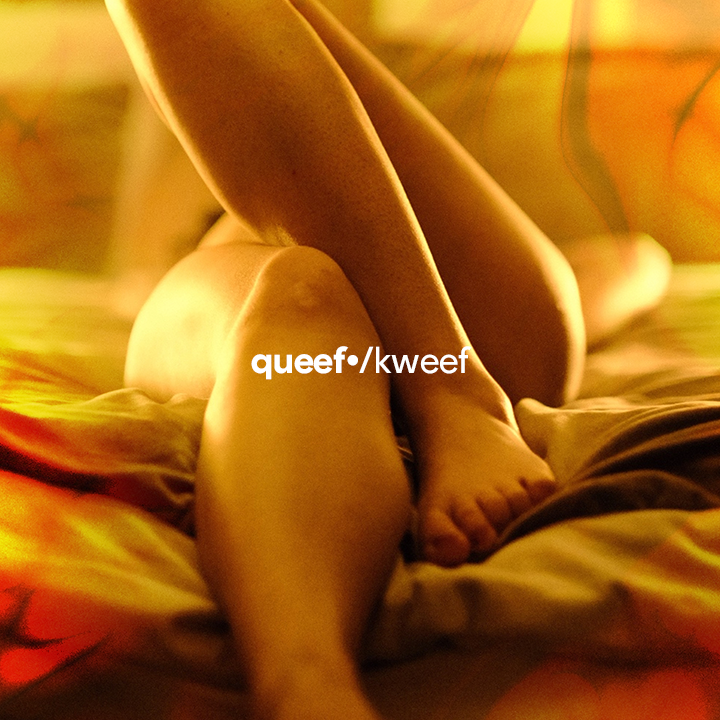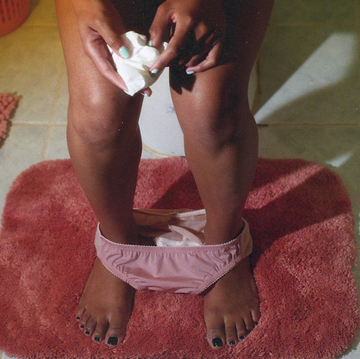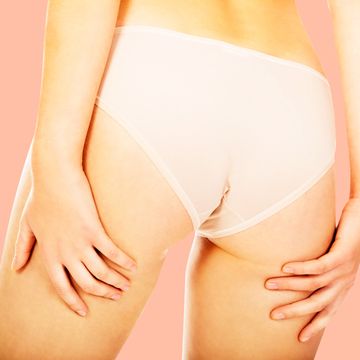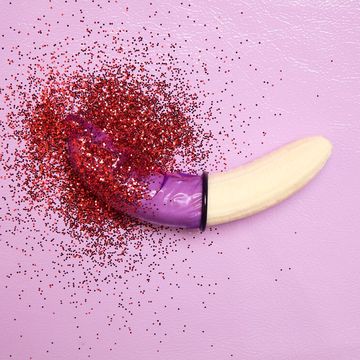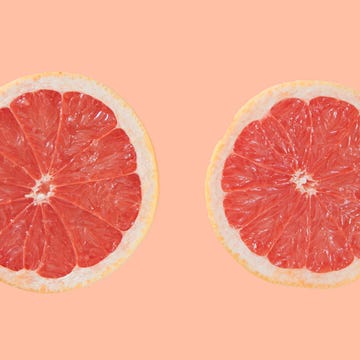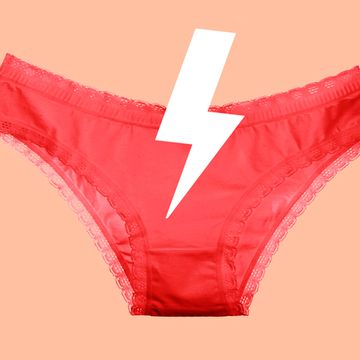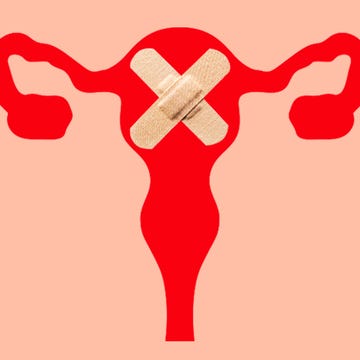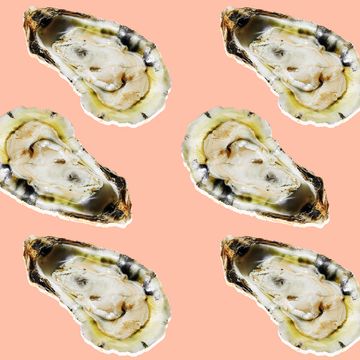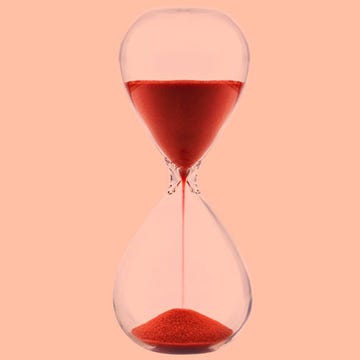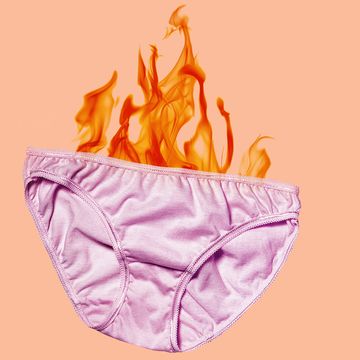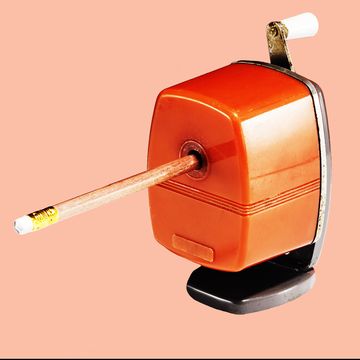Hello and welcome to your everything you need to know guide to queefing. But first, allow us to make one thing crystal effing clear: a queef—aka the sound and/or feeling of air escaping the vagina, often during sex—is NOT a fart, nor is it anything to be embarrassed by, mmkay? Although queefing tends to make a fart-like sound and is sometimes even referred to as “vaginal flatulence,” it’s simply not a vag fart.
“A queef is an odorless trapped air pocket that has nothing to do with your diet,” explains Tamika K. Cross, MD, FACOG, a board-certified ob-gyn based in Pearland, Texas. Queefs happen when air is pushed into and trapped inside the vaginal canal. Certain movements, like sex, can then expel the trapped air in a forceful, sometimes audible manner, explains Dr. Cross.
“Unlike the gas passed from the anus, the air that comes out during a queef does not have an odor,” adds board-certified ob-gyn Renita F. White, MD, member of The Pulse, a panel of experts for The Honey Pot Company. So yeah, not a fart.
More From Cosmopolitan

Still, even if we’re all adults here who are aware that a queef is literally just air leaving a vagina, it can still be embarrassing when one slips out during sex. “However, it's important to note that queefing is normal and not something to feel embarrassed or ashamed about,” says sexologist Danielle Simpson-Baker, MA, MFTI, a fellow member of The Pulse. Queefing is so normal, in fact, that it’s pretty much bound to happen to all vagina-having folks at some point or another. It’s completely natural and not something that you should feel like you have to “prevent,” notes Simpson-Baker. Oh, and JFYI, there’s no 100 percent foolproof way to prevent queefing anyway, she adds.
That. Said. Given the choice between queefing during sex and not queefing during sex, I think most of us would probably lean toward the no-queef option, thanks. And while there’s no way to guarantee a queef-free sexperience, there are some ways to help prevent it. So if you’re curious about how you can keep your vag from making any unwanted sounds while you’re just trying to get it on in peace, read on for everything you should know about queefing and how to minimize your odds of letting one rip during sex.
What is a queef?
“A queef is the noise made as a result of air getting trapped in the vagina,” says board-certified ob-gyn Sara Twogood, MD, an expert for Queen V. “That air entering and then exiting the vagina creates a vibration of the vaginal walls and vaginal opening, and that creates the noise. It can sound like a fart, which is why people are often embarrassed by it.”
Obviously, queefing tends to happen during activities that can introduce air into the vagina, like sex and exercise.
“The vagina is almost like a dead-end of space, and certain acts (like penetrative sex, masturbation, inserting tampons or even exercise) can allow the vagina to move in a way that lets air in,” says Simpson-Baker. “Because there's nowhere for the air to go, it must escape.” And thus, a queef is born!
What causes queefing?
Again, a queef is the result of air getting trapped in the vagina and unintentionally expelled.
“This air can get trapped in many ways,” says Dr. White. “The movement of a toy or penis into the vagina can trap air that gets released at unplanned moments. Though it may be embarrassing, it is very common and not harmful.”
According to Dr. Twogood, if queefing happens during sex, it’s likely that the penetrative object (be it a penis, a toy, a finger, etc.) “is coming out of the vagina all the way and then going back in quickly.” This motion is more likely to introduce air into the vagina and trap it there than if the thrusting partner or object remains inside the vagina at all times.
It’s also worth noting that some positions, like doggy style, are more queef-prone than others, adds Simpson-Baker.
Okay, so can you prevent queefing?
As of yet, there’s no queefing equivalent of Gas-X. (Although the idea of being able to take “Queef-X” is…intriguing.) While it might seem like a queef escapes your vagina only during the most embarrassing times (like during a silent moment in yoga or a quiet second during foreplay), they can sort of happen whenever.
“They’re especially common during sex because fingers, penises, or sex toys can easily push air up there,” says Vanessa Cullins, MD, vice president of external medical affairs at Planned Parenthood. “Your vagina also expands when you’re turned on, which makes more room for air. And vaginal moistness, which increases during sex, helps make that ‘poot poot poot’ sound.”
Because life is unfair and, frankly, we have very little control over our body’s functions, this does mean that, yes, your sexiest moments are also the moments when your vagina is most likely to let out a big ol’ fart sound. But there’s nothing abnormal about letting out a sputter of queefs every time you have sex—air is a gas, and the nature of gases is that they fill their containers; sometimes that container just happens to be your cavernous vagina.
Do certain sex positions help prevent queefing?
Short answer, there’s no guaranteed queef-proof position. "Anytime you're doing something that pushes air into the vagina, there's a chance that a queef will follow," says Simpson-Baker. “That said, some positions, like doggy style, may produce more queefing than others depending on how easy it is for air to get in there while you're having sex.”
Basically, since queefs are just odorless air pockets, any positions that can lessen the chances of air getting into your vag can help. Avoid placing your legs up in the air or keeping your legs open for prolonged periods of time, explains Dr. Cross. This also includes positions where your hips are raised above your head or your vagina is hoisted up in the air. (Once again, lookin’ at you, Doggy-style.)
You can also try exploring different speeds, angles, and slowing down during penetrative activities, adds Dr. Twogood.
Nevertheless, if you and your partner are really into rough sex and various position changes, rather than changing your sex life just to avoid a brief moment of potential embarrassment, just give your partner a heads-up that, uh, it might happen! Or don’t, and bond over laughing about it later.
Know that you might just be more anatomically prone to queefing than other people with vaginas.
All bodies are different, and that extends to your private parts. “Some women are more prone to queefing than others,” says Dr. Cross, depending on the shape and length of the vaginal canal. Vaginal lubrication also makes queefing more likely, so women with more naturally lubricated vaginas may tend to queef more, she adds. Nonetheless, this doesn’t mean you should try to keep your vagina desert-dry during sex in order to minimize your likelihood of queefing. In fact, please don’t do this. Painful sex is not worth it!
Do not be embarrassed if you queef—especially if you’re worried about what your partner might think.
If you hate queefing because it takes you out of the moment and makes it harder for you to orgasm, by all means, give non-doggy-style positions more playtime in your sex life. But don’t spiral over queefing for the sake of your partner. “To be honest, I don’t think anyone needs to consciously attempt to ‘avoid’ it, as this is a very natural and common physiologic function,” says Dr. Cross.
If you know you’re prone to queefing, having a conversation with your partner about it before play may help ease some of your anxieties. Remember, intimacy requires vulnerability, and pleasurable sex requires honest conversations.
Sex is messy, so things are bound to happen (like queefing) that you really shouldn’t be made to feel embarrassed about! (And anyone who does make you feel that way isn’t worthy of your time, thank u, next.)
“Here’s a little secret about sex: It’s kinda weird and messy and funny,” says Dr. Cullins. “There are smells. There are sounds. There are fluids. Sex is an intimate process that makes some of us feel pretty vulnerable, which is why it’s best to save it for someone who treats you with kindness and respect—like the kind of people who couldn’t care less about how queefy your vagina is.”
And if you do queef, just roll with it.
If you queef, then you queef! Period, moving right along, you don’t have to apologize. “There is no need to excuse a queef,” says Dr. Cross. “It may be embarrassing, but honestly, it’s super common and many women have experienced it at some time or another. Don’t let it be a mood killer.”
So, sure, queefs are a bit embarrassing, but in the end, you just kinda have to accept that life’s a toot and queefs happen.
Naydeline Mejia is an assistant editor at Women’s Health, where she covers sex, relationships, and lifestyle for WomensHealthMag.com and the print magazine. She is a proud graduate of Baruch College and has more than two years of experience writing and editing lifestyle content. When she’s not writing, you can find her thrift-shopping, binge-watching whatever reality dating show is trending at the moment, and spending countless hours scrolling through Pinterest.
